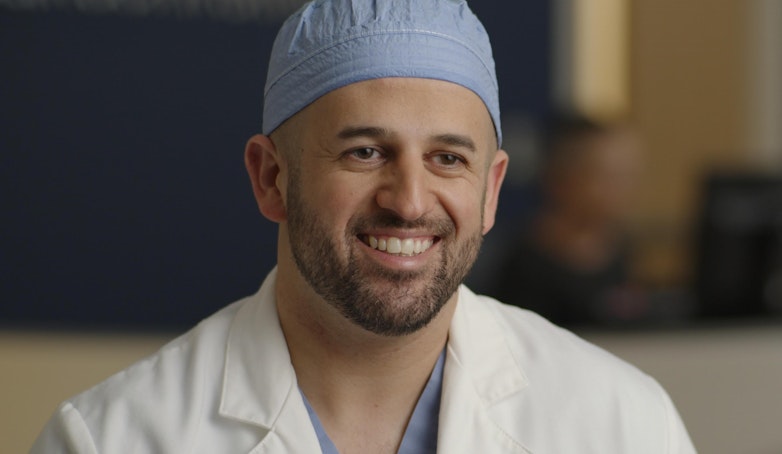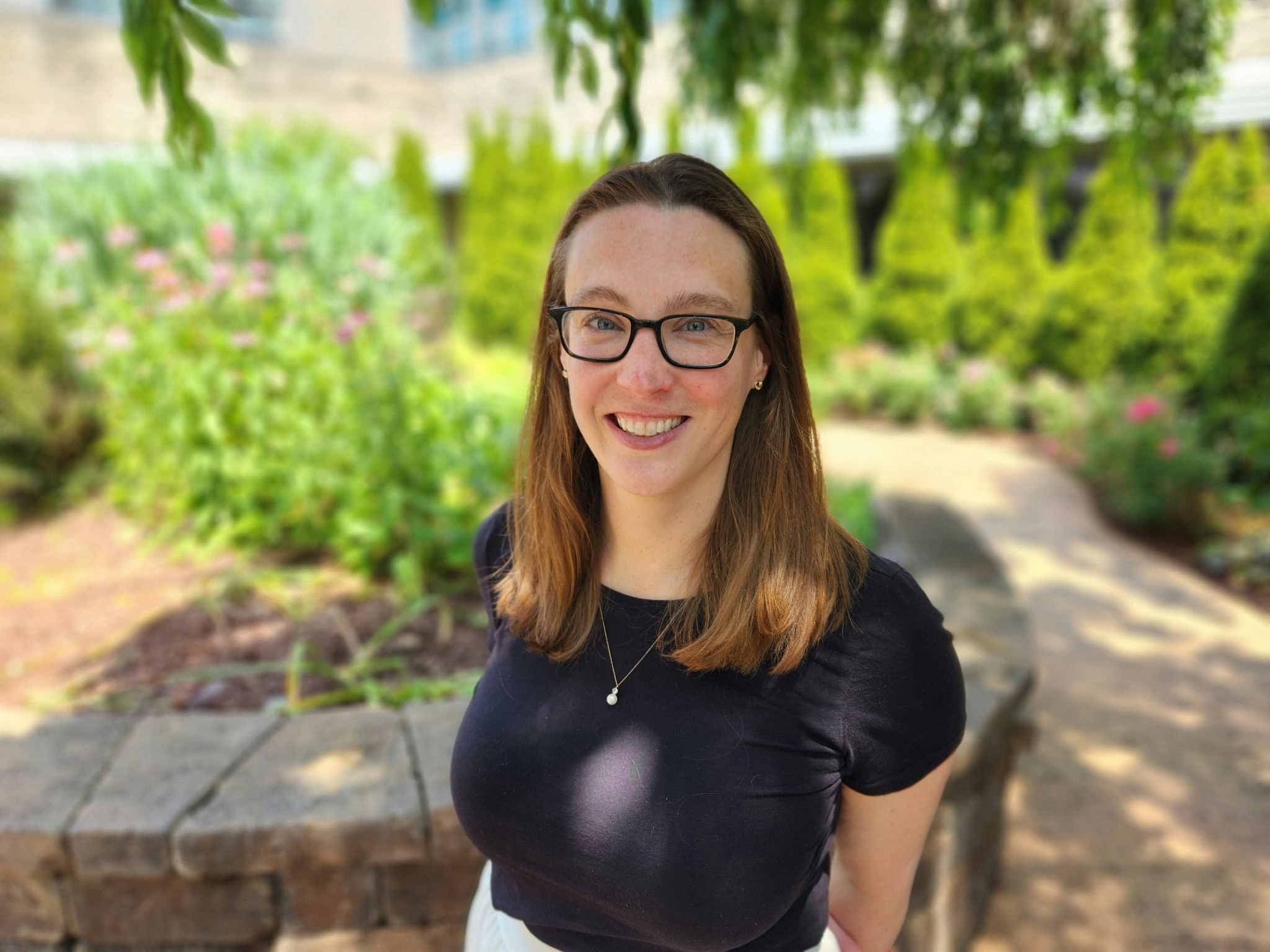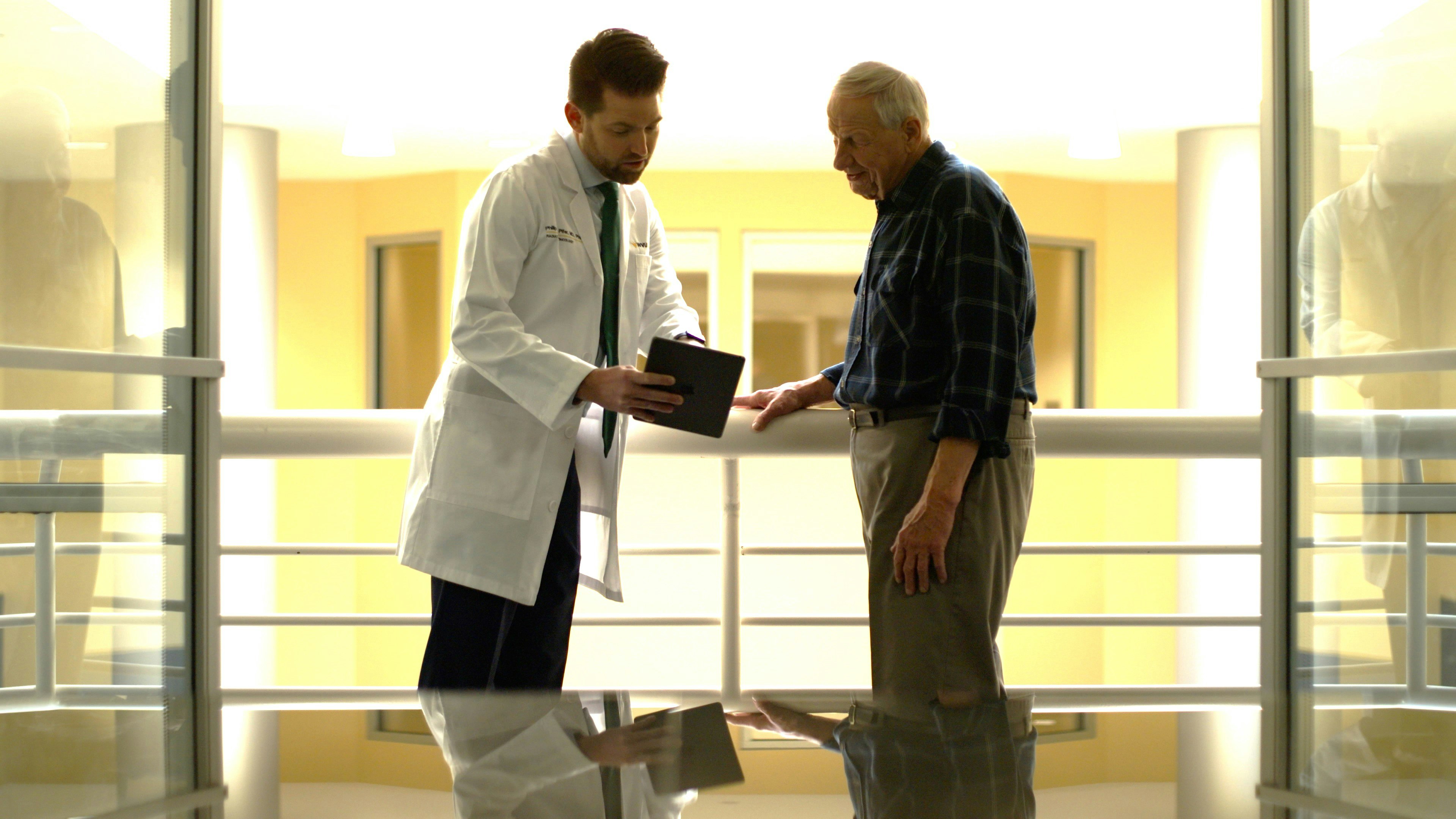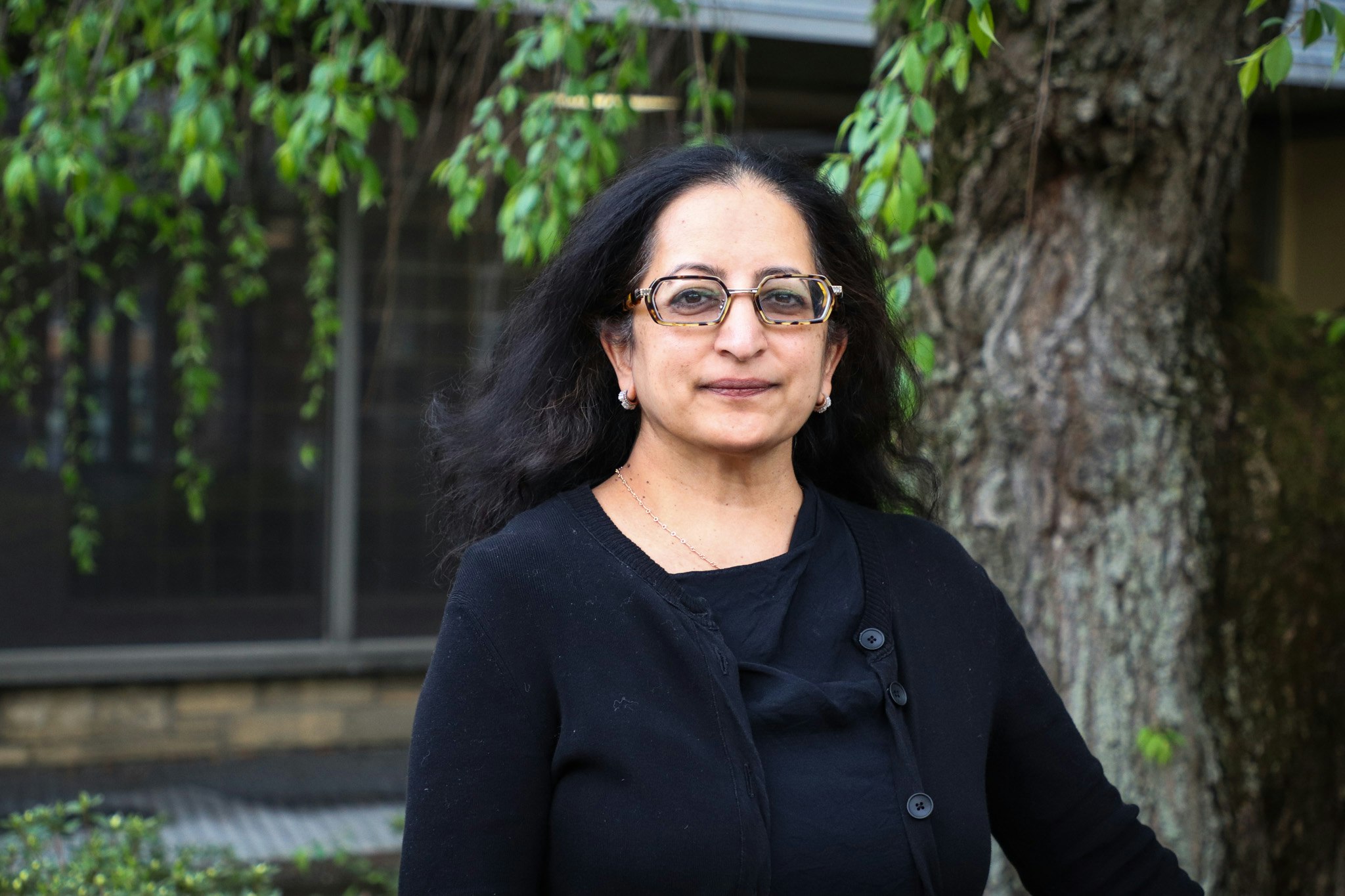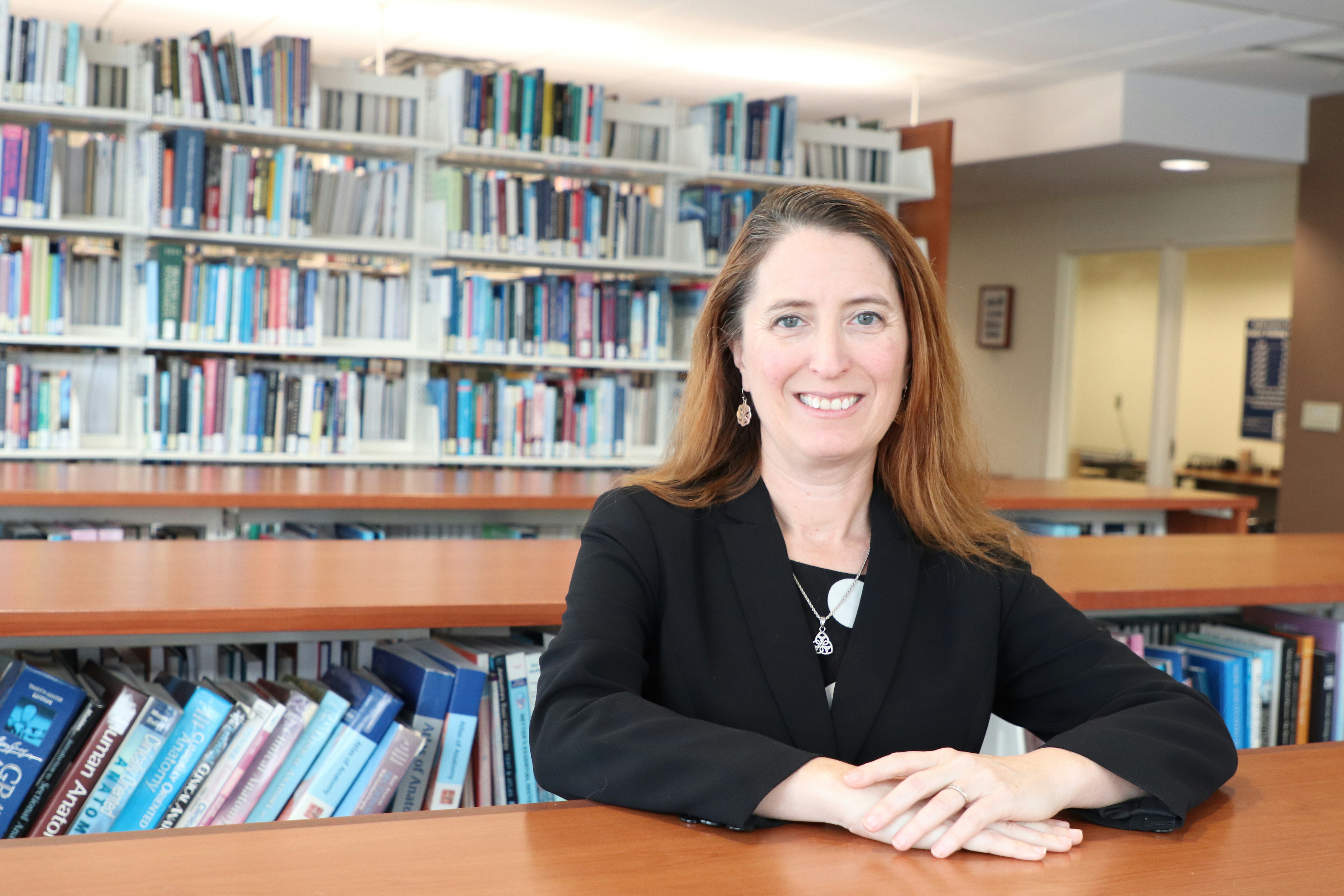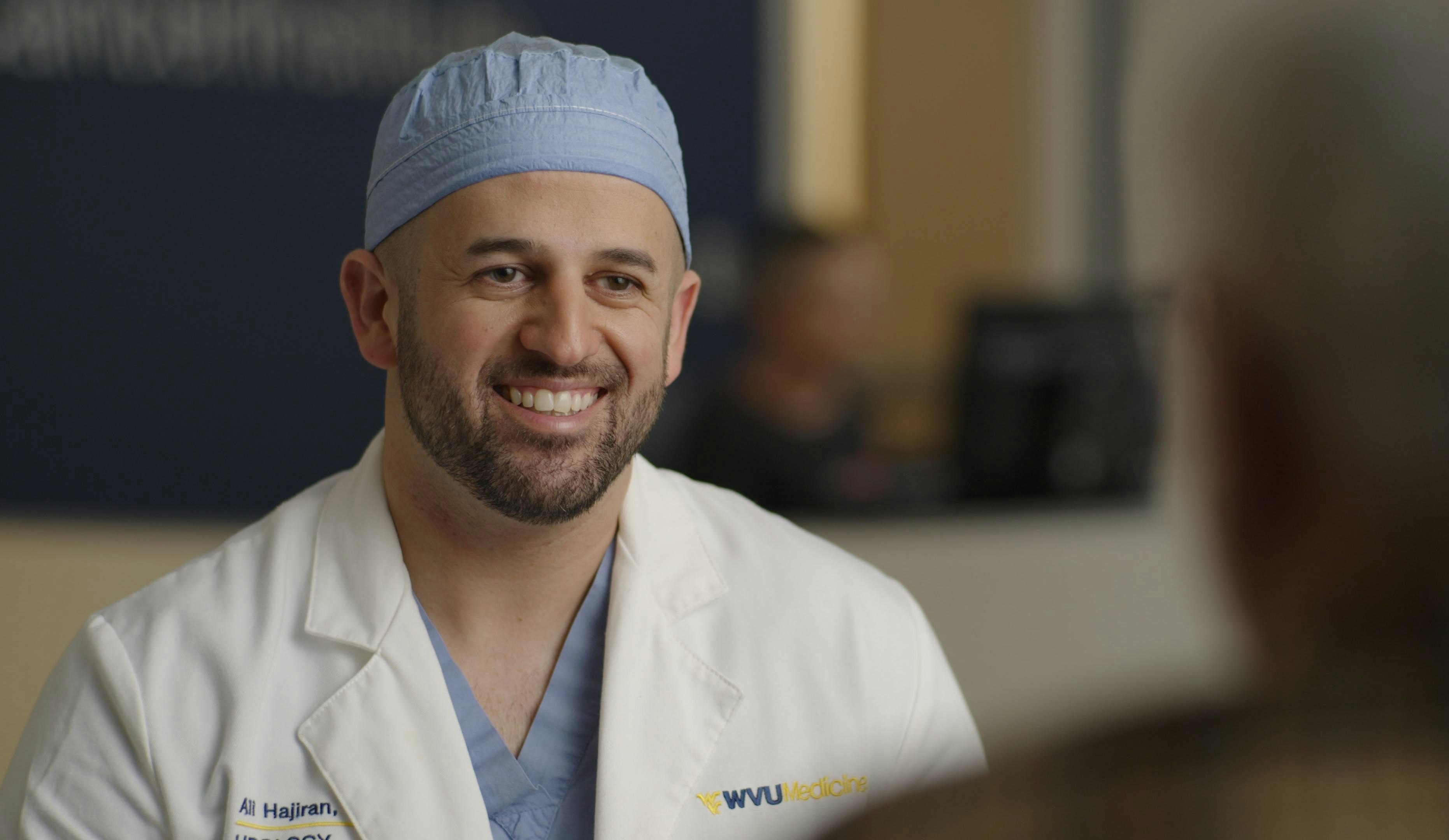When West Virginia native Ali Hajiran, MD, decided to become a doctor, he had a personal and professional goal: to get the best medical training possible and bring that knowledge and experience back to his community.
Dr. Hajiran successfully fulfilled that goal – and is already setting new ones.
After completing his medical degree and residency training in urology at West Virginia University School of Medicine, he was accepted into the highly competitive urologic oncology fellowship program at H. Lee Moffitt Cancer Center and Research Institute in Florida. And in 2021, he returned to his West Virginia roots, accepting the chief of Urologic Oncology position at the WVU Cancer Institute.
As a urologic oncologist, Dr. Hajiran surgically removes cancers that grow within the urinary tract, such as bladder and kidney cancer. He also treats cancers of the male reproductive system, including prostate cancer and testicular cancer.
In his leadership role, Dr. Hajiran focuses on expanding the urologic surgery program at the WVU Cancer Institute. He’s committed to ensuring West Virginians and others in the region have easy access to lifesaving surgery – including advanced robotic procedures.
“I was first drawn to the fields of urology and robotic surgery in medical school,” says Dr. Hajiran. “Since urologic cancer affects so many people, I felt that was an area where I could make a measurable impact. And robotic technology has helped revolutionize how we treat these cancers. For me, combining these two interests was the perfect career choice.”
In 2023, Dr. Hajiran and his colleagues were the first in the state to perform a partial nephrectomy (removing part of a kidney) using a new “single-port” robotic system. This approach requires just one or two tiny incisions (surgical cuts). It’s an important treatment option for certain patients who aren’t eligible for more invasive procedures.
“Today, no matter how advanced your urologic cancer is, you can get the treatment you need from WVU Medicine,” says Dr. Hajiran. He and his colleagues offer the full range of surgical procedures, including minimally invasive techniques that use fewer (and smaller) incisions. Patients who are eligible for these techniques typically have a faster, less painful recovery – and a lower risk of surgical complications.
Dr. Hajiran is also a researcher working to uncover more effective ways to predict who will get urologic cancer and how best to treat it.
“Not only is urologic cancer common, but here in West Virginia we have a very high rate of kidney cancer, especially among younger people,” he says. “My colleagues and I are collecting tumor tissue from patients to see if we can find a genetic component causing such aggressive cancers at such a young age. Finding out why this is happening is the first step in figuring out how to identify and treat these cancers sooner and more effectively.”
Although Dr. Hajiran appreciates the hands-on aspect of surgery, he says he loves working with patients. He also says whenever he meets with someone facing a cancer diagnosis, he’s mindful of their fear and anxiety.
“When I walk into an exam room, that could be the tenth person with cancer I’ve seen that day,” he explains. “But for them, this is a brand new experience. It could be the first time they’re hearing they have cancer and need surgery. So I approach each patient as if they’re a member of my own family.”
Outside of work, Dr. Hajiran enjoys staying active with his wife, young daughter, and two dogs. He is a runner and lap swimmer who signs up for as many half-marathons as his schedule allows.
“I’m so happy to be back in the state where I grew up,” adds Dr. Hajiran. “And it’s an honor to serve the people who make West Virginia such a great place to live, work, and raise a family.”
